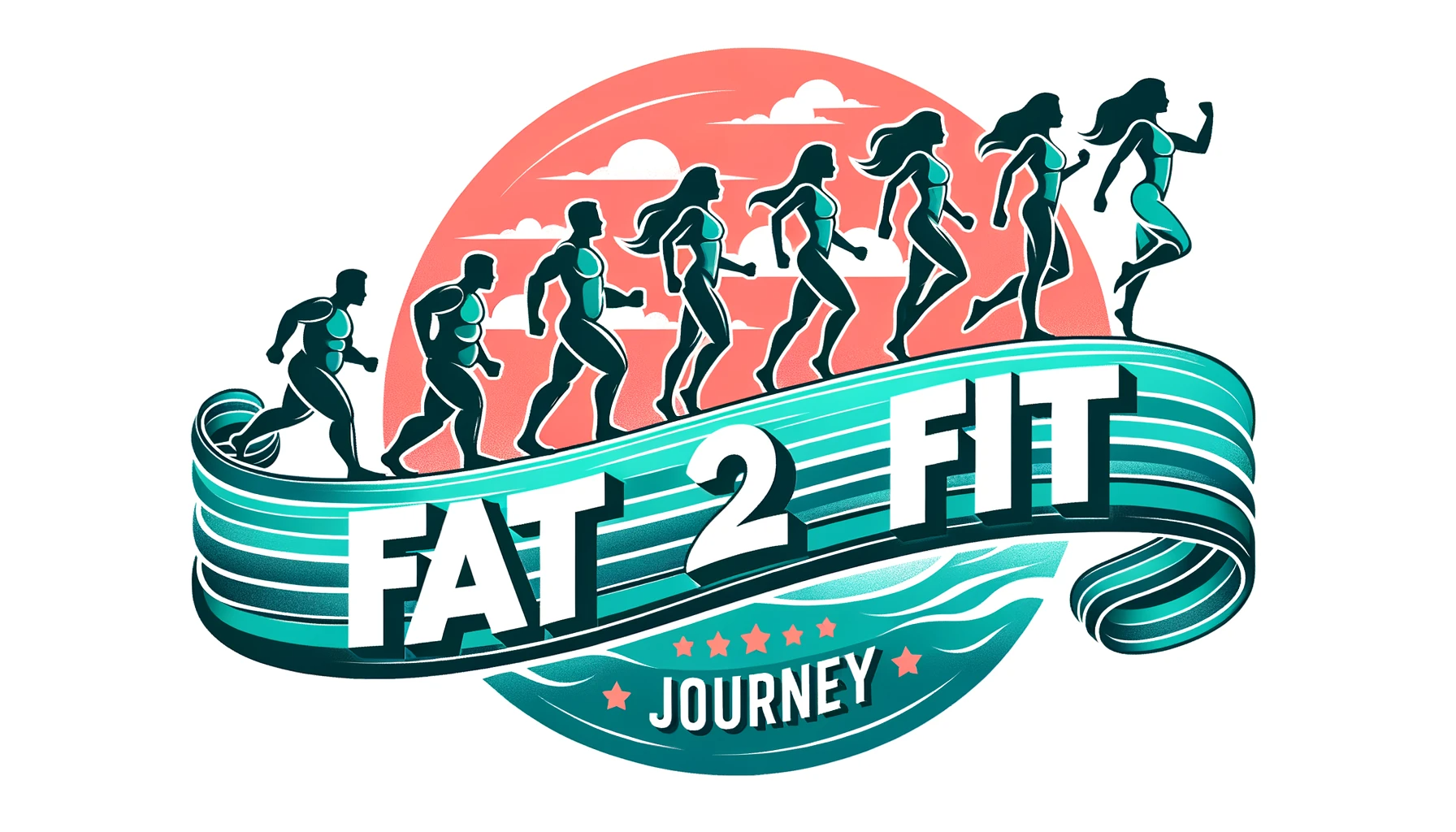In “Women’s Wellness: A Comprehensive Guide to Health,” discover a wealth of invaluable information and practical advice tailored specifically for women. This article serves as a trusted companion on your journey towards optimal well-being, offering a holistic approach to address various aspects of women’s health. From nurturing your mental and emotional well-being to promoting physical fitness and exploring self-care practices, this comprehensive guide empowers and supports you every step of the way. With a friendly tone and a wealth of knowledge at your fingertips, this article is a must-read for any woman looking to prioritize her health and achieve a balanced and vibrant life.
Table of Contents
Physical Health
Exercise
Exercise is a crucial aspect of maintaining a healthy lifestyle, and it plays a vital role in women’s wellness. Engaging in regular physical activity helps improve strength, flexibility, and endurance. It can also enhance cognitive function and boost mood. Aim for at least 150 minutes of moderate-intensity aerobic activity or 75 minutes of vigorous-intensity aerobic activity per week, along with muscle-strengthening exercises twice a week. This could include activities like walking, jogging, cycling, swimming, or attending fitness classes. Make it enjoyable by finding activities you love and incorporating them into your routine.
Nutrition
Maintaining a balanced and nutritious diet is essential for women’s wellness. Eat a variety of foods from different food groups to ensure you’re getting all the necessary nutrients. Focus on consuming plenty of fruits, vegetables, whole grains, lean proteins, and healthy fats. Limit your intake of processed foods, sugary snacks, and beverages. Stay hydrated by drinking enough water throughout the day. Individual nutritional requirements may vary depending on factors such as age, activity level, and certain health conditions, so it’s important to consult with a healthcare professional or registered dietitian for personalized advice.
Sleep
Adequate sleep is vital for your overall health and well-being. It allows your body to rest, repair, and rejuvenate. Aim for 7-9 hours of quality sleep each night to support optimal functioning. Establish a relaxing bedtime routine and create a sleep-friendly environment by keeping the bedroom cool, dark, and quiet. Avoid caffeine, electronics, and stimulating activities close to bedtime. If you struggle with sleep disturbances, such as insomnia or sleep apnea, seek medical advice to address any underlying causes and explore potential solutions to improve your sleep quality.
Reproductive Health
Women’s reproductive health requires special attention throughout various stages of life. Regular check-ups with a gynecologist or healthcare provider are essential for maintaining reproductive health. This includes routine screenings such as Pap smears, mammograms, and pelvic exams. It’s important to be aware of any irregularities or changes in your menstrual cycle, as well as any discomfort or pain in the pelvic region. If you experience any concerns related to fertility, menstruation, or reproductive organs, consult with a healthcare professional for appropriate evaluation and treatment options.
Cardiovascular Health
Heart disease is a significant health concern for women, so it’s crucial to prioritize cardiovascular health. Engaging in regular exercise and maintaining a healthy diet are key components of a heart-healthy lifestyle. Additionally, monitoring blood pressure, cholesterol levels, and blood sugar levels can help identify any potential risk factors. If you have a family history of heart disease or other cardiovascular conditions, it’s important to discuss these risks with your healthcare provider and develop a tailored prevention plan. Regular check-ups and screenings can aid in early detection and prevention of heart disease.
Mental Health
Stress Management
Stress is a common part of life, but excessive or chronic stress can have detrimental effects on mental and physical health. Incorporating stress management techniques into your daily routine can help promote overall well-being. Find healthy ways to cope with stress, such as practicing mindfulness, engaging in relaxation exercises, or participating in activities you enjoy. Prioritize self-care and make time for activities that bring you joy and relaxation. If stress becomes overwhelming, seek support from friends, family, or mental health professionals who can provide guidance and assistance.
Anxiety and Depression
Anxiety and depression are prevalent mental health concerns that affect many women. It’s important to recognize the signs and symptoms and seek help if needed. Symptoms of anxiety may include excessive worry, restlessness, difficulty concentrating, and physical symptoms like racing heart or shortness of breath. Depression symptoms may include persistent sadness, loss of interest or pleasure in activities, changes in appetite or sleep patterns, and feelings of hopelessness. If you experience these symptoms or suspect you may be dealing with anxiety or depression, reach out to a healthcare professional who can provide appropriate assessment and treatment options.
Psychological Well-being
Taking care of your psychological well-being is crucial for overall mental health. This involves maintaining healthy relationships, setting boundaries, and engaging in activities that bring you joy and fulfillment. Surround yourself with supportive and positive people who uplift and inspire you. Practice self-compassion and self-acceptance, embracing your strengths and imperfections. Engage in activities that promote personal growth and development, such as pursuing hobbies, learning new skills, or volunteering for a cause you care about. Seeking therapy or counseling can also be beneficial for enhancing psychological well-being and addressing any underlying emotional challenges.

Sexual Health
Sexual Education
Having access to comprehensive sexual education is essential for women’s sexual health and well-being. It enables individuals to make informed decisions about their sexual health, relationships, and contraception. Sexual education should cover topics such as anatomy, reproductive health, contraception methods, sexually transmitted infections (STIs), consent, and healthy relationships. It’s important to seek accurate and evidence-based information from reliable sources to ensure a well-rounded understanding of sexual health and to make informed choices.
Contraception
Contraception plays a fundamental role in family planning and empowering women to have control over their reproductive choices. There are various contraception methods available, including hormonal methods (such as birth control pills, patches, or injections), barrier methods (like condoms or diaphragms), intrauterine devices (IUDs), and fertility awareness methods. Each method has its own benefits, considerations, and effectiveness, so it’s important to consult with a healthcare professional to determine the most suitable option for your individual needs and preferences.
Sexually Transmitted Infections
Preventing and managing sexually transmitted infections (STIs) is essential for protecting women’s sexual health. Regular STI screenings, particularly for sexually active individuals, can aid in early detection and treatment. It’s important to practice safe sex by consistently using barrier methods, such as condoms, and getting vaccinated for STIs like HPV (human papillomavirus). Open communication with sexual partners about STIs and getting tested together can help promote responsible decision-making and reduce the risk of transmission.
Pregnancy and Childbirth
Pregnancy and childbirth are significant milestones in a woman’s life. It’s important to ensure proper prenatal care to support a healthy pregnancy and the well-being of both the mother and the baby. Regular prenatal check-ups, proper nutrition, prenatal vitamins, and essential screenings are all crucial components of prenatal care. Women should be aware of the signs and symptoms of potential pregnancy complications and seek medical attention if any concerns arise. Educate yourself about childbirth options, such as natural birth, epidurals, or caesarean sections, and discuss your preferences with your healthcare provider to create a birth plan that aligns with your needs and desires.
Emotional Health
Self-care
Self-care involves engaging in activities that prioritize your emotional, physical, and mental well-being. It’s crucial to make time for self-care amidst the demands of daily life. This could include activities such as taking a warm bath, practicing meditation or yoga, reading a book, or enjoying a hobby. Self-care is a personal practice, so find activities that resonate with you and make you feel nurtured and rejuvenated. Prioritizing self-care helps to prevent burnout, manage stress, and improve overall emotional well-being.
Building Resilience
Resilience refers to the ability to adapt and bounce back from challenges and adversity. Cultivating resilience is valuable for women’s emotional health and coping skills. Building resilience involves developing strong support networks, fostering positive beliefs and attitudes, nurturing optimism, and practicing gratitude. Engaging in activities that promote personal growth, such as taking up new challenges or learning from past experiences, can also contribute to building resilience. Remember that resilience is a journey, and it requires patience and self-compassion. Embrace setbacks as opportunities for growth and learning.
Managing Emotions
Women experience a wide range of emotions, and it’s important to understand and manage them effectively. Emotional intelligence involves recognizing and understanding your emotions and the emotions of others. Practice self-awareness by paying attention to your emotional state and identifying triggers that may affect your emotional well-being. Develop healthy coping mechanisms for handling difficult emotions, such as journaling, talking to a trusted friend or therapist, or participating in activities that bring you joy. Learning to effectively manage and express emotions allows for healthier relationships and promotes overall emotional well-being.
Coping Skills
Developing effective coping skills is essential for navigating life’s challenges. Coping mechanisms can vary from person to person, so it’s important to find strategies that work best for you. This might include practicing deep breathing exercises, engaging in physical activities, using visualization or relaxation techniques, or seeking social support. Learning healthy ways to cope with stress, grief, or other difficult emotions can contribute to overall emotional resilience and well-being. If you find it challenging to cope with certain situations or emotions, consider seeking guidance from a mental health professional who can provide tailored support and coping strategies.

Social Well-being
Relationships
Strong and healthy relationships are vital for social well-being. Cultivate meaningful connections with family, friends, and partners by investing time and effort into building and maintaining these relationships. Effective communication, mutual respect, and active listening are important components of healthy relationships. Develop a support system of trusted individuals whom you can lean on in times of need. It’s also important to recognize and address toxic or unhealthy relationships, as they can have a negative impact on your overall well-being.
Supportive Networks
Having a support system is crucial for social well-being and emotional resilience. Surround yourself with supportive individuals who uplift and inspire you. Seek out like-minded individuals or join groups, clubs, or organizations that align with your interests and values. Supportive networks provide a sense of belonging, enhance well-being, and offer valuable emotional support during challenging times. Actively engage with your support system by nurturing those relationships, offering support to others, and being open to seeking help when you need it.
Community Engagement
Engaging with your community contributes to social well-being and a sense of purpose. Participate in community events, volunteer for causes you care about, or join local organizations that align with your values. Engaging with your community allows you to meet new people, broaden your horizons, and make a positive impact. It fosters a sense of connection and belonging, which is essential for overall well-being. By actively participating in your community, you can contribute to positive change and create a more vibrant and inclusive society.
Reproductive Rights and Choices
Family Planning
Family planning enables women to make informed decisions regarding the timing and spacing of pregnancies, supporting their overall reproductive health and well-being. It involves access to contraception methods, educational resources, and reproductive healthcare services. By planning pregnancies, women can better manage their physical, emotional, and financial resources, enabling them to pursue educational and career opportunities, as well as ensure the well-being of their existing children. Family planning empowers women to have control over their reproductive choices and promotes healthy, planned pregnancies.
Abortion Rights
Access to safe and legal abortion is a fundamental aspect of women’s reproductive rights. Women have the right to make decisions regarding their own bodies and reproductive choices. The availability of safe and legal abortion services ensures that women can safely terminate pregnancies in circumstances where it is necessary or desired. It is important to recognize that each individual’s situation is unique, and decisions related to abortion should be made in consultation with healthcare professionals and in line with local laws and regulations.
Prenatal Care
Prenatal care refers to medical care and support provided during pregnancy to ensure the well-being of both the mother and the baby. Regular prenatal check-ups, nutrition counseling, and essential screenings are important components of prenatal care. These services help monitor the progress of the pregnancy, address any concerns, and provide guidance to support a healthy pregnancy. Prenatal care also includes education about labor and delivery, breastfeeding, and postnatal care. Access to prenatal care is essential for promoting positive pregnancy outcomes and ensuring the health and well-being of both mother and baby.

Preventive Care
Screenings and Vaccinations
Regular screenings and vaccinations are crucial for preventive care and early detection of potential health issues. Women should undergo routine screenings such as Pap smears, mammograms, and pelvic exams as recommended by healthcare professionals. These screenings help detect conditions like cervical cancer, breast cancer, and reproductive health issues early on when treatment is most effective. Vaccinations, such as those for HPV, influenza, and hepatitis, offer protection against numerous diseases and should be administered as per healthcare guidelines.
Cancer Prevention
Cancer is a significant health concern for women, and adopting preventive measures can reduce the risk. Leading a healthy lifestyle that includes regular exercise, a balanced diet, and avoiding tobacco and excessive alcohol use can help lower the risk of certain cancers. Additionally, staying up to date with recommended cancer screenings and being aware of any changes in your body can aid in early detection and treatment. Regular self-examinations for breast and skin changes, as well as professional screenings for cervical and colorectal cancers, are essential preventive measures for women’s health.
Heart Health
Heart disease is a leading cause of death among women, emphasizing the importance of prioritizing heart health. Engaging in regular physical activity, maintaining a healthy diet rich in fruits, vegetables, and whole grains, and managing stress are key factors in promoting cardiovascular health. Monitoring blood pressure, cholesterol levels, and blood sugar levels can help identify any potential risk factors. It’s also important to be aware of the warning signs of a heart attack or stroke and seek immediate medical attention if necessary. Integrating heart-healthy habits into your daily routine can significantly impact long-term heart health and overall well-being.
Menopause
Symptoms and Management
Menopause is a natural phase in a woman’s life when menstrual periods cease. It typically occurs between the ages of 45 and 55. Menopause brings about various physical and emotional changes due to hormonal fluctuations. Common symptoms include hot flashes, mood swings, sleep disturbances, and vaginal dryness. Managing menopausal symptoms may involve lifestyle modifications, hormone replacement therapy (HRT), or alternative therapies such as herbal supplements or acupuncture. Consult with healthcare professionals to discuss the best options for managing menopausal symptoms based on your individual needs and medical history.
Hormone Replacement Therapy
Hormone replacement therapy (HRT) is a treatment option for managing menopausal symptoms by supplementing hormones that decline during menopause. Estrogen and progesterone are the main hormones replaced through HRT. It can help alleviate symptoms like hot flashes, night sweats, mood swings, and vaginal dryness. However, HRT is not suitable for everyone, as it may carry certain risks or contraindications. It’s essential to have a thorough discussion with healthcare professionals to weigh the potential benefits and risks based on your individual needs, medical history, and preferences.
Bone Health
During menopause, there is an increased risk of osteoporosis, a condition characterized by weak and brittle bones. Maintaining optimal bone health becomes crucial during this stage of life. Ensure an adequate intake of calcium-rich foods, as well as vitamin D, which aids in calcium absorption. Engaging in weight-bearing exercises, such as walking or strength training, can help maintain bone density. It’s also important to avoid smoking and excessive alcohol consumption, as they can contribute to bone loss. Regular bone density screenings and discussion with healthcare professionals can help identify any issues and inform appropriate management strategies.
Aging Gracefully
Healthy Aging Habits
Aging is a natural process, and adopting healthy habits can contribute to aging gracefully. Regular exercise helps maintain muscle tone, flexibility, and overall vitality. A balanced diet with adequate nutrients supports optimal health and vitality as you age. Protect your skin from sun exposure by applying sunscreen, wearing protective clothing, and avoiding excessive tanning. Stay mentally active by engaging in activities that challenge your mind, such as puzzles, reading, or learning new skills. Nurturing social connections and maintaining a positive outlook on life are also important factors in aging gracefully.
Skin Care
Caring for your skin is essential at every age, and it becomes especially important as you age. Protect your skin from the sun’s harmful rays by wearing sunscreen and seeking shade. Hydrate your skin by drinking plenty of water and using moisturizers. Cleanse and moisturize your skin regularly and avoid harsh skincare products that may damage or irritate your skin. Regularly examine your skin for any changes or abnormalities and consult with a dermatologist if you notice any concerns. Remember, healthy skin is a reflection of overall well-being, so prioritize skincare as part of your daily routine.
Mindfulness
Practicing mindfulness involves being fully present in the moment, free from judgment or distraction. Embracing mindfulness can bring numerous benefits to women’s overall well-being as they age. It helps reduce stress, promotes emotional well-being, and enhances self-awareness. Incorporate mindfulness practices into your daily routine, such as meditation, deep breathing, or yoga. Pay attention to your thoughts, emotions, and sensations, and strive to cultivate a sense of gratitude, acceptance, and peace. Embracing mindfulness can lead to a more fulfilling and enriching life, allowing you to age gracefully and with a greater sense of contentment.
Work-Life Balance
Time Management
Maintaining a healthy work-life balance is crucial for overall well-being and satisfaction. Effective time management ensures that you allocate time for work, personal life, and self-care. Prioritize tasks based on importance and urgency and set realistic expectations for yourself. Set clear boundaries between work and personal life, limiting distractions during personal time. Utilize tools like calendars or planners to organize your schedule and allocate time for self-care activities. Remember that it’s essential to strike a balance and prioritize self-care to avoid burnout and maintain overall well-being.
Setting Boundaries
Setting boundaries is necessary for maintaining a healthy work-life balance and protecting your overall well-being. Clearly define your limits and communicate them to your colleagues, supervisors, and loved ones. Establish boundaries around work hours, personal time, and responsibilities. Learn to say no when necessary and delegate tasks when possible. Prioritize self-care and make time for activities that bring you joy and relaxation. Setting healthy boundaries allows you to protect your time, energy, and well-being, fostering a healthier work-life balance and enhancing overall satisfaction.
Professional Development
Investing in professional development is crucial for personal growth, career advancement, and overall satisfaction. Continuously acquiring new skills, knowledge, and expertise can lead to increased job fulfillment and opportunities. Stay informed about industry trends, attend workshops or conferences, and pursue further education or certifications relevant to your field. Seek out mentorship or networking opportunities to connect with professionals who can offer guidance and support. Professional development promotes confidence, competence, and a sense of accomplishment, contributing to overall career success and work-life balance.
